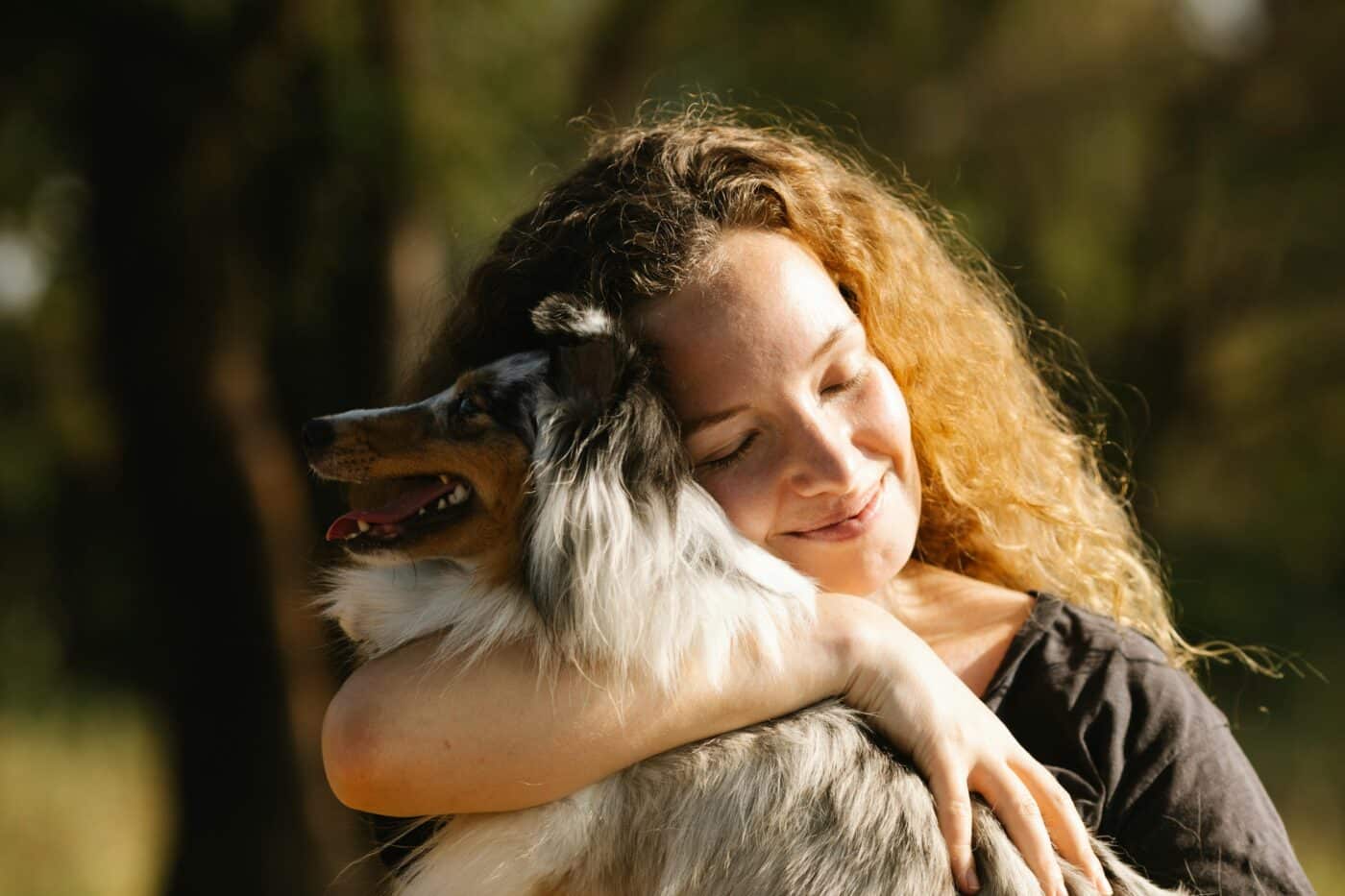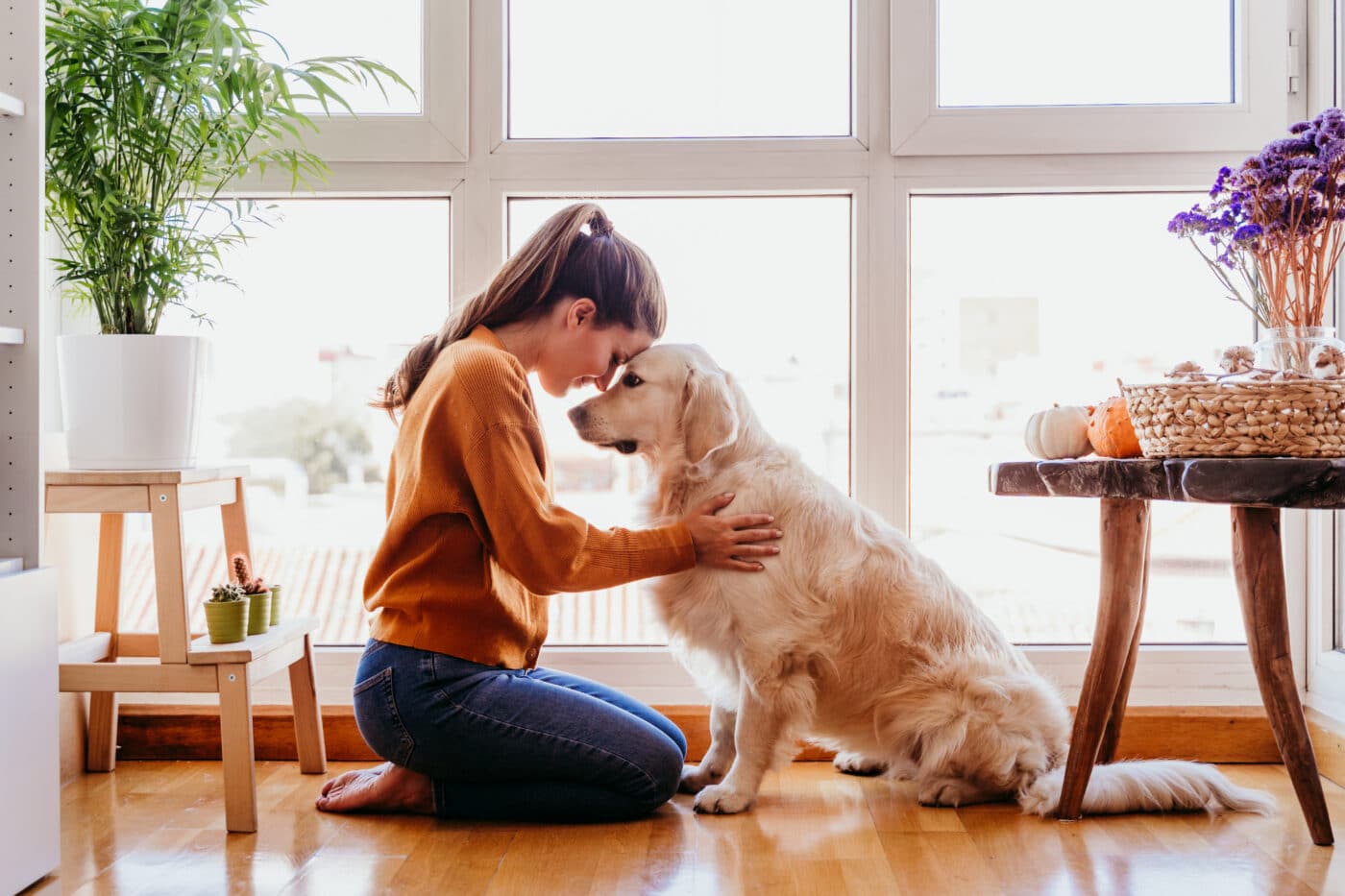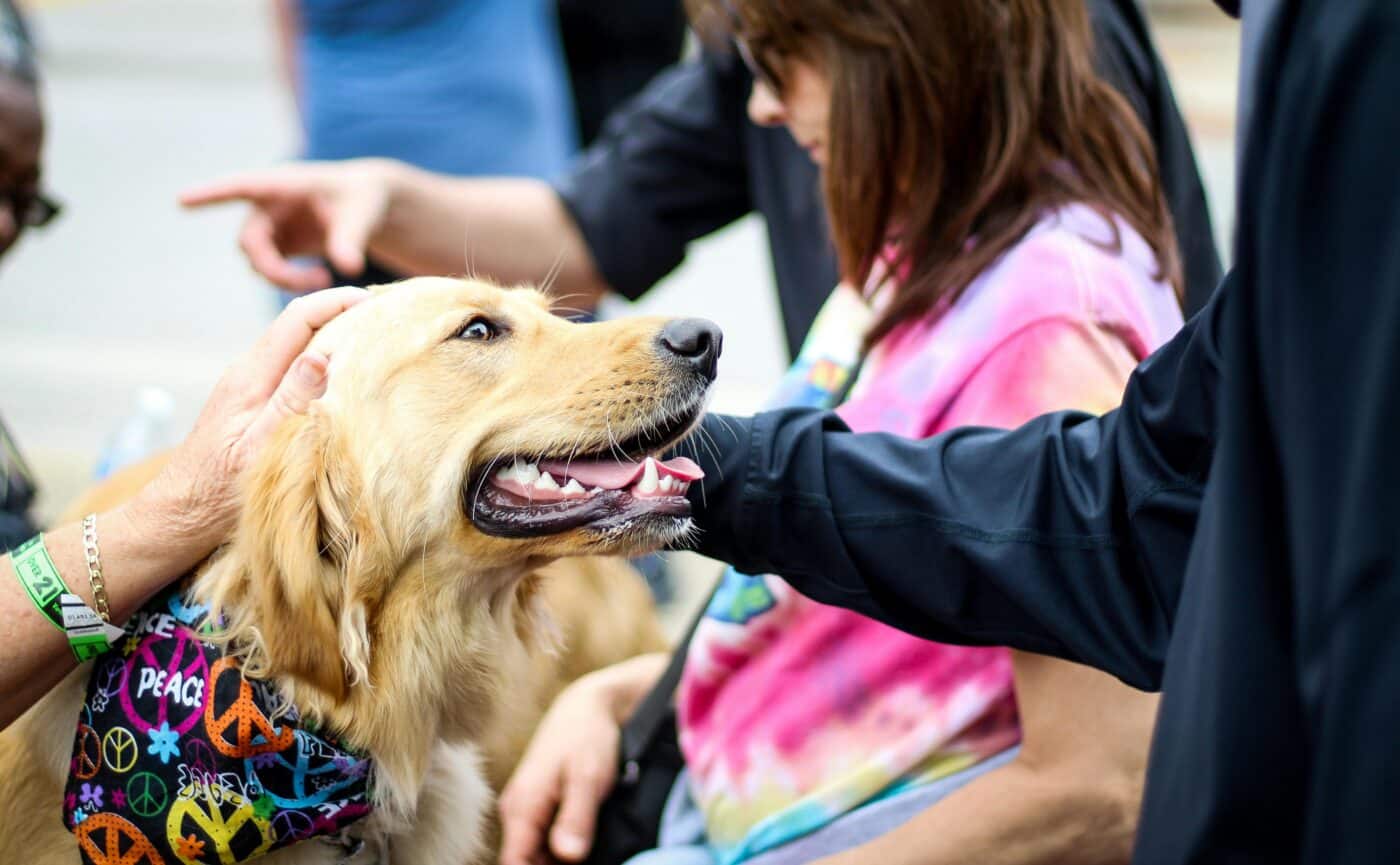
 Shutterstock
Shutterstock
Dogs are well-known for their ability to sense human emotions, and they seem to know exactly when you’re feeling off. Whether you’re stressed, sad, or upset, dogs can pick up on subtle cues and react in ways that show their understanding. Their keen senses, including smell, hearing, and body language awareness, combined with their strong emotional bond with you, make them remarkable companions for emotional support. It’s no surprise that dogs always seem to know when you need comfort, offering their love and attention when you need it most.
They Can Smell Changes in Your Body Chemistry
 Shutterstock
Shutterstock
One of the most remarkable ways dogs can sense your bad mood is through their superior sense of smell. Dogs have up to 300 million scent receptors in their noses, compared to a human’s mere 5 million. This heightened sense allows them to detect even the subtlest changes in your body chemistry. When you’re stressed, anxious, or upset, your body releases different pheromones and hormones such as cortisol, which is often referred to as the “stress hormone.” These chemical signals are imperceptible to humans but can be easily detected by your dog. They are so attuned to these changes that they can instantly pick up on your emotional state, even before you consciously realize you’re in a bad mood. That’s why your dog might act differently when you’re feeling down—they’ve already noticed the shift in your scent and are responding accordingly.
They Tune into Your Tone of Voice
 Shutterstock
Shutterstock
Dogs are incredibly sensitive to the tone of your voice, which is another way they can detect if you’re in a bad mood. They may not understand every word you say, but they can pick up on the emotional cues in your speech. If you raise your voice in frustration or speak in a softer, slower manner when you’re upset, your dog will take note of this change in tone. Research shows that dogs are especially attuned to the emotional nuances of human speech, with some studies suggesting they can differentiate between happy, sad, or angry tones. When you’re in a bad mood, your tone becomes more tense or harsh, and dogs respond to that by becoming more subdued, cautious, or even trying to comfort you. They associate certain vocal tones with distress, and their response is often to try to figure out how to make you feel better.
They Observe Your Body Language
 Shutterstock
Shutterstock
Dogs are incredibly adept at reading human body language. They are experts at noticing subtle shifts in your posture, facial expressions, and overall movements. If you’re slumped over, avoiding eye contact, or clenching your fists, your dog will sense these nonverbal cues. Dogs are particularly sensitive to changes in the way we move and hold ourselves, and they can tell if you’re anxious or upset simply from your body language. For instance, if you’re frowning or tense, your dog might respond by staying closer to you, sitting quietly, or trying to nudge you gently with their nose. Similarly, if you’re more energetic or moving quickly, a dog will notice and may act more excited or playful. This silent communication between you and your dog is one of the reasons they are so in tune with your mood.
They Can Tell by Your Behavior and Routine Changes
 Shutterstock
Shutterstock
Dogs thrive on routine and are keenly aware of any changes to your daily patterns. If you suddenly stop taking them for walks, miss meal times, or don’t engage in your usual playful activities, they’ll notice. A shift in your behavior can be an indication to your dog that something’s wrong. Dogs are creatures of habit, and they find comfort in the predictability of their environment. So when your normal routine is disrupted by a bad mood or stress, your dog may sense that something is off and may respond by becoming more protective, cautious, or simply more affectionate, trying to bring you back to a sense of normalcy. In this way, dogs don’t just rely on observing your mood in the moment; they’re also experts at noticing changes in your overall behavior.
They Respond to Your Energy and Stress Levels
 Shutterstock
Shutterstock
Dogs are highly intuitive when it comes to picking up on the emotional energy around them, and they can sense if you’re feeling anxious, overwhelmed, or just plain stressed. When you’re upset, your energy changes—your movements might become more erratic or frenetic, and your breathing may become shallow or rapid. Dogs are known to mirror their owner’s emotional state, which is why your dog might become agitated or overly energetic if you’re stressed. On the flip side, if you’re feeling down or sad, your dog might become more subdued, laying near you in a quiet, comforting presence. This sensitivity to energy is part of why dogs make such wonderful emotional support animals—they can adjust their own energy levels to match yours, offering comfort and a sense of calm in times of need.
They Can Detect Your Heart Rate and Breathing Patterns
 Shutterstock
Shutterstock
Dogs are incredibly attuned to subtle changes in your physiological state, including your heart rate and breathing patterns. When you’re in a bad mood or stressed, your heart rate may increase, and your breathing may become more shallow or rapid. Dogs, with their highly sensitive hearing, can often hear changes in your heartbeat or notice shifts in your breathing patterns. They may even react by staying closer to you, offering comfort, or simply sitting still by your side. Their acute sense of hearing allows them to detect these internal cues, which is why they often know when you’re feeling off, even if you’re trying to hide it. This physical sensitivity is one of the key ways dogs can sense your emotional state and respond with love, affection, or protective behavior.
They Pick Up on Your Facial Expressions
 Shutterstock
Shutterstock
Dogs are also experts at reading human faces, and they can identify when you’re upset simply by observing your facial expressions. Research has shown that dogs can recognize both happy and sad facial expressions and will often react accordingly. If you’re frowning or showing signs of distress, your dog may act more cautiously, stay close to you, or try to comfort you with a lick or nudge. Conversely, if you’re smiling and relaxed, your dog will likely respond with excitement and affection. Just like how humans read each other’s facial cues, dogs have learned to associate different expressions with certain emotions, allowing them to sense if you’re not feeling your best. If your expression is one of sadness, frustration, or worry, your dog can pick up on these subtle signals and offer comfort in their way.
The Emotional Support Squad Is Here!
 Shutterstock
Shutterstock
Next time you’re feeling down or stressed, remember that your dog is not just a loyal companion but also an emotional detective, expertly sensing when something’s off. With their heightened senses and deep emotional connection, dogs can read your body language, hear changes in your voice, and even detect stress hormones. Whether it’s offering a comforting cuddle or wagging their tail, your dog is there to lift your spirits. They’ve already figured out what’s going on—and they’re ready to help you feel better!

